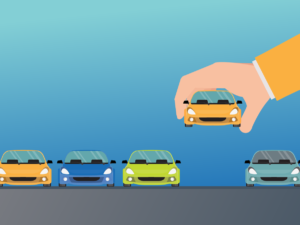Learn Why the Condition of Your Leased Vehicle Matters
Under a car lease, a lessee does not have any ownership of his/her leased car. Lessees simply pay for the right to drive a car owned by his/her leasing company. For this reason, most car lease car agreements stipulate the kind of condition the leasing company expects the car to be in once the lease ends and the car is returned. If a car is in poor or damaged condition when returned, most leasing companies will charge the lessee a wear and tear fee.
You should check your lease agreement to see what kind of condition your leasing company expects your car to be in at the end of your lease. Try to be objective when evaluating the state of your leased car. If it is in unreasonably poor condition, you will likely owe your leasing company a wear and tear fee when/if you return it.
However, you do not have to pay any wear and tear fees if you purchase your leased car at the end of your lease. One of the benefits of an auto lease purchase is that your leasing company does not care about the condition of your vehicle when you buy it.







